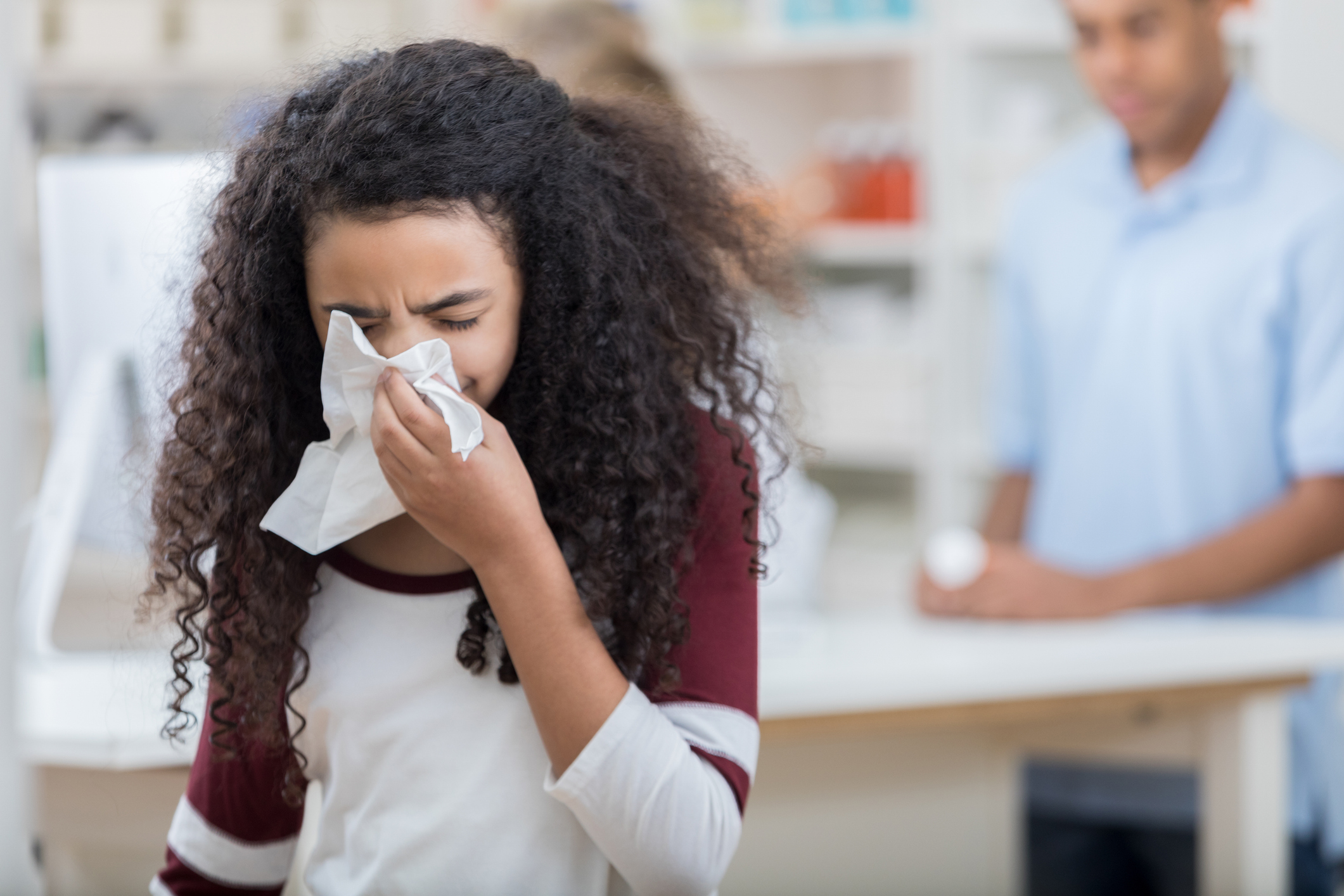
Dear APS Families and Staff,
Winter illness season is here. Hand, foot, and mouth disease (HFMD), norovirus, influenza (flu), and COVID-19 are some illnesses to be aware of this season. To protect yourself and others, please keep your child at home if they are sick and inform your school clinic. The School Health Program asks that you read the information below to learn how to spot signs of illness and help stop it from spreading:
HFMD: HFMD is a common virus that usually affects infants and children, but it can sometimes occur in adults.
HOW IT SPREADS: An infected person may spread the viruses that cause HFMD through close personal contact, small droplets in the air (through coughing or sneezing), contact with feces (poop) or contaminated objects and surfaces.
SYMPTOMS: HFMD typically begins with a fever, loss of appetite, a general feeling of being unwell, and a sore throat. One or two days after fever starts, painful sores that blister usually develop in the mouth and a skin rash might appear. The rash is usually on the palms of the hands and soles of the feet, but might also appear on the knees, elbows, buttocks or genital area. Most people recover on their own within 7 to 10 days. Some people may not have symptoms but can still pass the illness to others. Serious illness from HFMD is rare.
WHAT YOU SHOULD DO FOR YOUR CHILD: Make sure your child washes his/her hands frequently and thoroughly with soap and warm water, especially after using the toilet. Parents or adults who assist children with potty training or changing diapers should always wash their hands afterward. Please keep your child at home until they are feeling well and no further blisters appear. Avoid contact with other people to prevent them from getting sick – in particular, do not share gum, drinks, or food/eating utensils. Contact your healthcare provider if symptoms worsen and your child has difficulty swallowing or taking liquids.
NOROVIRUS: People of all ages can contract and become ill with gastrointestinal (GI) illnesses, such as norovirus. It is sometimes called the “stomach flu” or the “stomach bug.” However, norovirus illness is not related to the flu, which is caused by the influenza virus. Norovirus causes acute gastroenteritis, a swelling of the stomach or intestines. Most people with norovirus illness get better within 1 to 3 days; but they can still spread the virus for a few days afterward. Thorough handwashing and other simple steps can help prevent the spread of norovirus.
HOW IT SPREADS: Norovirus is very contagious. It spreads easily and quickly through contact with infected people and through contaminated food, water, or surfaces. People are most contagious when they have symptoms of norovirus illness and during the first few days after they feel better. Norovirus is in the vomit or feces of infected people. The virus can also stay in feces for 2 weeks or more after people feel better and can still spread to others during that time.
SYMPTOMS: The most common symptoms of norovirus are diarrhea (watery stools), vomiting, nausea, stomach pain/cramping, and/or low-grade fever. A person usually develops symptoms 12 to 48 hours after being exposed to norovirus.
WHAT YOU SHOULD DO: If you or your child is sick with GI illness, wait at least 2 days (48 hours) after symptoms stop before returning to work or sending your child to school. This is important if you work in a restaurant, or attend or work at a school, daycare, long-term care facility, or other places where you may expose people to norovirus. Make sure you and your child wash hands frequently and thoroughly with soap and warm water both at home and at school. Scrubbing should last for at least 20 seconds. Hand sanitizer is not very effective against norovirus.
FLU: The Flu is caused by different types of influenza viruses. It can cause mild to severe illness. Some people, such as older people, young children, and people with certain health issues, including pregnancy, asthma, lung and heart problems, weakened immune systems, and others, are at high risk for serious flu complications. The best way to prevent the flu is by getting the flu shot each year.
HOW IT SPREADS: Influenza and similar viruses are spread by coughing, sneezing, and close contact. Less often, a person might get the flu by touching an object contaminated with the flu virus and then touching their own mouth, eyes, or nose. Sharing eating utensils or drinking glasses may also spread the flu.
Symptoms: The most common symptoms of flu are fever or feverish/chills and either a new cough or sore throat. Feeling tired, muscle soreness, headaches, and a runny/stuffy nose may also occur. Some people – especially children – may also have vomiting and diarrhea. Someone with COVID-19 may also have the same symptoms.
MEDICINES TO PREVENT FLU: If you or your child fall into one of the high-risk groups above and have been around someone with flu, please talk with a healthcare provider about whether taking medication before illness develops is right for you.
WHAT YOU SHOULD DO: Please keep your student home if they have fever (a temperature of 100.4°F or higher), vomiting, and/or diarrhea. Consider taking flu and COVID-19 tests to determine the cause of your illness. Students should not return to school until 24 hours have passed without a fever, and without the use of fever-reducing medications.
COVID-19: COVID-19 (coronavirus disease 2019) can spread very easily and quickly. Most people with COVID-19 have mild symptoms, but some people become very ill. Some people are more likely than others to get very sick if they get COVID-19. This includes individuals who are older, have a weakened immune system, have certain disabilities, or have unknown health conditions. The best way to lower the chance of getting severely ill with COVID-19 is to stay up to date with the COVID-19 vaccine, even for persons who have had COVID-19 in the past.
HOW IT SPREADS: COVID-19 is most commonly spread by coughing, sneezing, and close contact with someone sick with COVID-19. Less often, a person might also get sick by touching an object that has been soiled by someone else and then touching their own mouth, eyes or nose. Sharing forks and spoons or drinking glasses with someone sick with COVID-19 may also lead to illness.
SYMPTOMS: The most common symptoms of COVID-19 are fever or chills, a new cough, sore throat, shortness of breath, and new loss of taste or smell. Feeling tired, having sore muscles, headaches, and runny/stuffy nose also may occur. Some people, especially children, may also have vomiting and diarrhea. Someone with flu may also have the same symptoms as someone with COVID-19.
WHAT YOU SHOULD DO: Please keep your student home if they have fever (a temperature of 100.4°F or higher), vomiting, and/or diarrhea. Consider taking flu and COVID-19 tests to determine the cause of your illness. Students should not return to school until 24 hours with no fever, and without the use of fever-reducing medications.
HOW TO HELP PREVENT THE SPREAD OF ILLNESS:
PLEASE REMEMBER: Covering coughs or sneezes, staying home when sick, and washing hands regularly and thoroughly are crucial in helping prevent both the contraction and spread of HFMD, flu, COVID-19, and norovirus. Visit CDC’s Handwashing Campaign site for more information. Children may be excluded from school if they have an illness that prevents them from participating comfortably in school activities or if there is a risk of spreading a contagious disease to others. More information on APS illness guidelines can be found online.
It’s not too late for vaccination against the flu, or COVID-19!
For the flu vaccine: Everyone ages 6 months and older should receive a flu vaccine each year.
- To find flu vaccines near you go to https://vaccinefinder.org/en/ and type in your zip code and select your vaccine option.
- The Arlington County Public Health Division also has vaccine clinics each week. Click here for more information about appointment times, locations, and costs.
For the COVID-19 vaccine: People aged 6 months and older can receive the 2025–26 COVID-19 vaccines based on individual-based decision-making with a healthcare provider. This includes pharmacists.
- To find COVID-19 vaccines near you, visit https://vaccinefinder.org/en/ and type in your zip code and select your vaccine option.
MORE INFORMATION: General information from the Centers for Disease Control and Prevention (CDC) on respiratory illnesses is available on the CDC website. Information from the CDC on norovirus is available online.
Sincerely,
Sarah Bell, MPH, BSN, RN
School Health Bureau Director
 Contact
Contact  Calendars
Calendars Careers
Careers Engage
Engage  District
District



